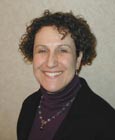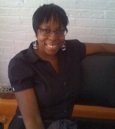To add additional perspectives to the paranormal romance/urban fantasy conversation, I approached a number of the editors who work in these categories to participate in an editorial roundtable of sorts. Of course, getting any group of editors together, even by email, isn’t as easy as you might think. Jury duty, vacations, overstuffed email inboxes, a tornado, and a power outage all took their toll.
My thanks to the intrepid editors who responded to our first topic:
 |
Deb Werksman, Editorial Manager, Sourcebooks |
 |
Monique Patterson, Senior Editor, St. Martin’s Press |
 |
Alicia Condon, Editorial Director, Brava |
Join us as we talk about how the development of heroines and heroes is affecting the paranormal romance and urban fantasy genres!
Melissa Ann Singer: Let’s look at the heroine and hero in paranormal romance and urban fantasy.
How did the development of the kick-ass heroine affect paranormal romance as a category? Are all paranormal/urban fantasy heroes alpha males?
How does the heroine of today stack up against the heroine of gothic romance, which seems to me to be a precursor to paranormal romance/urban fantasy?
Deb Werksman: Let’s talk about this kick-ass heroine. I think readers love her so much because she is US! Perhaps we don’t have the collection of weapons, but today’s reader is smart, well-educated, powerful in her sphere of influence, and wants to determine her own destiny. Created in the reader’s image, and dedicated to celebrating her, our kick-ass heroine is like this:
- She’s smart, sexy and can multi-task with a vengeance.
- She has a truly awesome collection of weapons and knows how to use them.
- She may or may not have supernatural powers, fangs, fur, or feathers but for sure she’s powerful.
- She’s living on her own terms and not accepting less than her due.
- She’s making it in a man’s world (yes, alas, it’s still a man’s world).
- She doesn’t suffer fools gladly and she doesn’t suffer injustice at all.
- She’s not bitchy, whiny, spoiled, bratty, or a victim.
- She’s not too thin or too rich—she actually has some humanity to her—maybe a big ass, or something else she (and society) perceives as a flaw, but the hero digs it seriously.
- She’s also got a vulnerable and nurturing side.
- While she’s kicking ass and looking great, she also knows you have to laugh sometimes, or die.
Monique Patterson: Strong heroines have been popular in romance for a long time. Women have always wanted to see themselves in the heroines they are reading about, and, let’s face it, women hold their own and then some, even in the toughest of circumstances. And boy, do you hear it when a reader thinks a heroine is too weak or just doesn’t seem to have all the lights on upstairs. It’s one of my pet peeves too. However, the kick-ass heroine, especially as portrayed in paranormal romance, stepped things up even more. These ladies aren’t just smart and savvy. They’re smart, savvy, and can hurt you—if you’re the bad guy, of course. And what you see in these stories (if they’re done well) is how both the heroine and her powers evolve over the course of the novel and/or series. As a matter of fact, the evolution of both go hand-in-hand (again, if done well).
Today’s heroine might carry a Sig Sauer P220 Combat and take down vampires and demons before breakfast, but she wouldn’t exist if it weren’t for the heroine of the gothic romance. I mean really, can’t you picture Jane Eyre handling pesky vampires or rogue werewolves today with no problems whatsoever?
Regarding the paranormal/urban fantasy hero: No, not all paranormal/urban fantasy heroes are alpha males…but a lot of them are. The reason? The alpha is the leader of the pack, the head honcho, the ultimate warrior. And when you’re facing off against the Big Scary, you want the ultimate warrior at your back. And let’s face it…it really doesn’t hurt that he’s to die for too.
Deb: I say it all goes back to Jane Austen!
Jane Austen’s most famous heroine, Elizabeth Bennet, was feisty, smart, and independent-minded, but she was still very much a woman of her time. Today’s heroines have the challenge of being powerful but still vulnerable in our modern world of anomie and anything-goes. It’s hard work to make a heroine kick-ass but not bitchy or bratty. It seems to work best when she’s got strong values of some kind—there’s something she’s really committed to and nothing is more important than that, especially not a man.
Put this strong woman into a supernatural world, and you’ve got enormous possibilities—the paranormal element can be part of the threat to her commitment, or it can be part of what she’s so committed to. Katherine Kennedy’s new series, starting with The Fire Lord’s Lover this fall, introduces a magnificent fantasy world and a heroine with a brilliant political motivation.
Heroes always have to be alpha, I think. Like Mr. Darcy, he’s got to be tall, dark, handsome, rich, and misunderstood. Underneath it all, he and the heroine share the same commitment, but it takes them most of the book to figure that out. Meanwhile, there are battles to fight, beasts (literal or figurative) to slay, and intense mutual attraction to resist.
Gothic romance is the precursor of today’s paranormal/urban fantasy world-building, but not the precursor of today’s heroine. I love how paranormal/urban fantasy allows authors to expand their imaginations. In the end, in paranormal/urban fantasy more than any other subgenre, the world-building is essential—if hero and heroine are creatures of their environment, and the world is fascinating and credible, the reader is going to have a great time!
Alicia Condon: Gotta say I’m most intrigued by the second part of this question. Mulling it over, I started thinking about how women and their view of themselves have changed in the past few decades. Since writers speak for the rest of us, those changes have definitely shown up in popular entertainment.
Could any two types of characters be more different than the helpless young virgin of a typical gothic romance and the kick-ass heroine of most paranormal romance/urban fantasy? The gothic heroine finds herself in a situation where she has lost control, usually confined to a creepy house/castle, symbolizing her inability to escape her feminine gender role. Like the average woman of the ’50s and ’60s, she’s expected to accept the status quo, even though it’s stifling her. Her only hope of rescue is the hero, but is he to be trusted with her emotions or will he be the death of her?
The heroines of recent paranormal romances/urban fantasies have plenty of their own power. Check out Jamie Meacham in Shelly Laurenston’s contribution to Belong to the Night. (Excerpt here.) She’s not only a witch, but one of the most powerful people in a town full of dangerous shape shifters. Unlike our gothic heroine, she’s not afraid of the paranormal—she revels in it, and isn’t afraid to use action, even violence, to get what she wants. Another difference is that she’s surrounded by friends, the other members of her coven, who’ve got her back if trouble comes up. The gothic heroine is always alone.
But when it comes to our heroes, I’m not sure how much progress has been made. They still aren’t quite trustworthy and tend to be the rival of the kick-ass heroine rather than her partner. Yeah, they’re hot but are they really heroic? Is the modern woman fantasizing about being super tough because she senses that when it comes to creating a genuine male/female connection, she’s basically got to make it happen on her own?
Deb Werksman is the Editorial Manager of SourceBooks, which has been publishing romance titles under its Casablanca imprint since 2007. This year, she was named Editor of the Year and Sourcebooks has been named Publisher of the Year by the New York City chapter of RWA.
Monique Patterson is a Senior Editor at St. Martin’s Press where she acquires women’s fiction, paranormal fiction, African American fiction and a selective amount of commercial non-fiction, which includes pop culture and celebrity bios for all parts of the list and for all formats. Her favorite pastime…is reading. What a surprise.
Alicia Condon has been editing romance for the last thirty plus years and is currently Editorial Director in charge of Brava, where she acquires romance of every persuasion for all of Kensington’s imprints. She has always had an eye for paranormal romance, picking Dara Joy’s first book out of the slush pile, and launching Christine Feehan, Nina Bangs and C.L. Wilson. This month she is the envy of many paranormal romance fans as she works on the sequel to Shelly Laurenston’s Beast Behaving Badly. Alicia also blogs on the Brava Authors website.
Melissa Ann Singer is guest editor for Paranormal Fantasy and Urban Romance month on Tor.com. She is also an editor at Tor Books, and some other things too.









